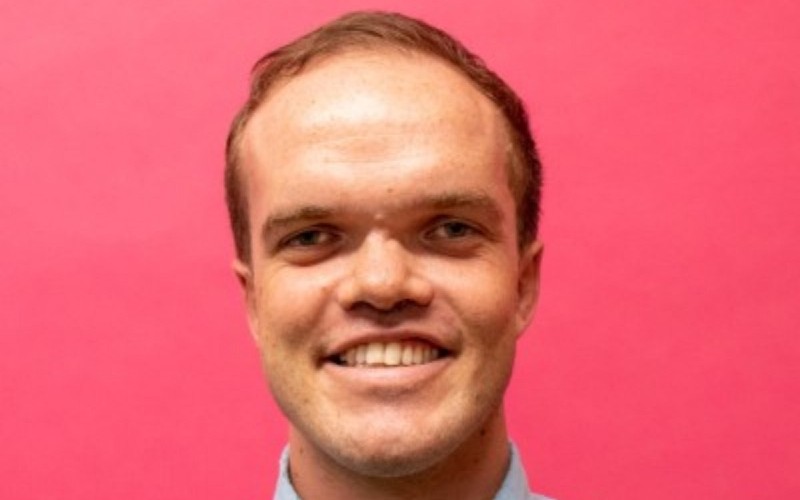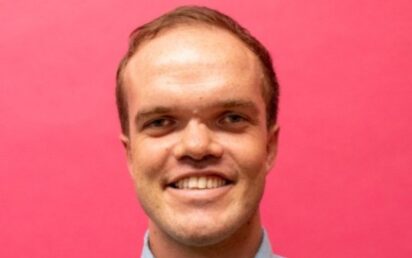You need a certain amount of confidence to launch a business.
But dreaming big and talking a good game will never be enough if you are blind to crucial areas of your startup – such as a fast-enough supply chain – which can manifest through lack of experience.
Giles Harrison is now riding high as the co-founder of Sculpd; however, his first startup ground to a painful halt.
Having quit his job in a bullish mood to found a matcha tea business, he soon found out how difficult startups are – and how much more difficult physical goods businesses are compared to digital ones.
“After university I had a bit of an identity crisis [after studying engineering for four years],” he tells the Secret Leaders podcast. “There was an expectation that that was the path that I would take. But I’d always enjoyed running businesses: I was the typical person running around the playground trying to sell sweets to people for a markup from the tuck shop.
“I applied for the New Entrepreneurs Foundation, which is a year-long programme: you join an existing business and learn the skills required to launch your own at some point in the future. In my interview process, I told the founder: ‘I actually plan to leave your business quite soon, because I want to start my own business!’
“I redacted lots of lines from the job contract such as ‘the IP that you create is ours’ and ‘you can’t be a director of another business’. I became wrapped up into this idea that I was going to become an entrepreneur myself pretty soon afterwards, and just had no idea about the demands of working the job and also trying to launch a business.”
Mention Me
Soon after joining that company – Mention Me, a marketing software-as-a-service business – he had the idea of bringing a consumer matcha green tea business to market.
“The basic premise was to position it as an alternative to coffee for busy millennials, who would perhaps not enjoy the caffeine buzz that you get from coffee, but still like a pick-me-up more aligned with healthy living choices,” he explains.
“I wrapped a lot of my identity up into this fledgling business. I would talk about it a lot, I’d pitch it to people and get their reaction and use that as inputs to my business development. I was doing a lot more of that than the hardest thing – actually developing the product.
“I was quite good at making fancy pitch decks: I pitched it to a panel at the New Entrepreneurs Foundation Awards and won a grant. I was good at building a website and making the proposition look appealing for someone scrolling through Instagram.
“And all the time I was ignoring the fact that the product wasn’t ready. The product wasn’t tested. We didn’t have any packaging. And we had no firm supplier.”
Software v physical product
The software world he inhabited in his day job – where you can build and ship products overnight with no scalability constraints – was a very different place.
“I perhaps naively assumed that farming green tea on the other side of the world would be the same… I ended up dropping everything and trying to then develop the product,” says Harrison. “Very quickly, it became apparent that this had gone on for so long, and the amount of investment required to get a physical product off the ground was so high, that I’d actually just completely lost interest in the business.
“Probably a month into that time I knew the business was going to just completely fold. But I kept grinding on, knowing that it just wasn’t going anywhere.
“And when I was pitching it, trying to be effusive to friends and family, people I met… each time the pitch just got a bit flatter and a little bit more laboured. And then the killer question of: when is it launching? And I just wouldn’t have an answer.”
Killing the business
It got to the point where he could either put in £25,000 of his own money – which he didn’t have – to get the first version of the product up and running within six months, or “kill the business”.
“I decided it’d be best for me to go back to the drawing board, acknowledge that the sunk effort is lost, and then hopefully be able to drink the three-year supply of matcha green tea that I’d accumulated through all of this time!
“There are a lot of emotions tied up in that process… one of the hardest ones for me was I’d tied up so much of my emotion and identity in this business. Suddenly there was nothing – it just disappeared.”
Harrison says Andy Cockburn, the CEO at Mention Me, was very supportive as he’d had a failed business before.
“He watched this whole process unfold. He said: ‘What have you learned from this? What would you have done differently?’ He talked it through with me.
“I was scared that this would reflect really badly on me and I would perhaps lose credibility in the business and not be able to rise through the business as quickly as I wanted to, because I’d been sidetracked and distracted, but that just wasn’t the case – that was a big nervousness of mine that just never really materialised.”
Harrison remained at the business, a platform to generate customer referrals, for more than five years, rising to the position of VP strategy & GM expansion.
New approach with Sculpd
He now runs Sculpd, an air-dry clay pottery kit startup, with co-founder Guy Vero.
“Being a solo founder is really hard because you’re unlikely to have all the skills you require to get a business off the ground,” says Harrison. “I also find the energy of other people helps me drive along.
“We went about it almost the opposite way: we spent our first few days understanding the product we could bring to market that would satisfy the demand that we thought our customers had. We then built the website and the Instagram account – and went from there.
“That allowed us to very quickly flush out issues in supply; when we did start getting orders, we had a pathway to scaling that up much faster rather than selling product that didn’t exist or we had a limited supply of.”
Secret Leaders is available on Apple, Spotify and all major podcast platforms.


